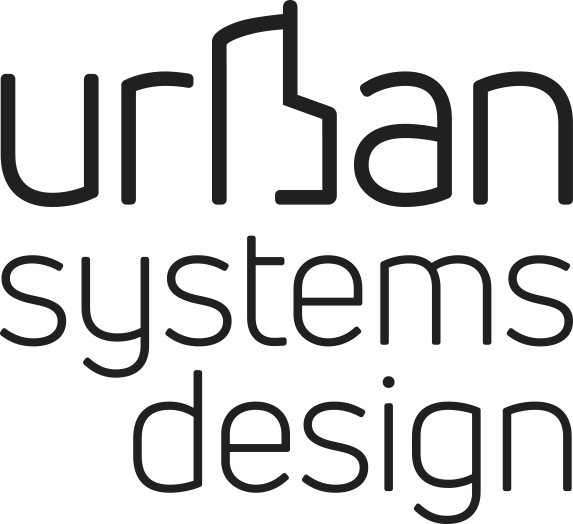USD in PLEA 2020
Klaus Bode, Balint Bakos, Joana Carla Soares Gonçalves and Carine Berger from our USD Family participated successfully in the 35th International Conference PLEA 2020 – Passive and Low Energy Architecture: Planning Post Carbon Cities, in A Coruña, Spain.
Klaus Bode – Keynote Speaker
The six keynote speakers addressed the theme of Planning Post Carbon Cities from a strategic design perspective and vision, qualified by research activities in real context as well as in the analytical realm. The role of people´s behaviour and behavioural change, alongside the design focus of fulling people´s needs and expectation in both buildings and urban design defined a common thread seen across all the six talks spread along the three-days conference.
Klaus Bode, Founding Director in Urban Systems Design, was one of the keynote speakers in the first day of the event. Klaus´ talk about Planning Post Carbon Cities: Our Challenges and Opportunities could not stress more the key role of occupants in reducing energy demand in buildings, calling for a design approach that he entitles human centric design, whilst revealing the potential for innovative and effective solutions at both building and masterplan scales, when based on passive environmental strategies and low-energy engineering.
In addition to the emphasis put on the role of people in the design and planning of the Post Carbon City, by addressing issues of existing built environments, the keynote speakers collectively showcased a wide range of successful real and experimental projects, that highlight the advantages of a multidisciplinary approach, in reverting the current environmental and social conditions in cities around the world, in a creative and environmentally sound manner.
Watch Klaus' keynote speech: PLANNING POST CARBON CITIES – Our Challenges & Opportunities.
Balint Bakos – Awarded a Commendation
Balint Bakos, Environmental Consultant from USD, was awarded a commendation in the PLEA 2020 International Conference for his paper entitled Scalable Design Framework for Sustainable Urban Housing: The Case for Lagos, Nigeria, written in collaboration with Dr. Paula Cadima, Co-Director of the Master Programme in Sustainable Environmental Design, of the Architectural Association Graduate School in London, UK.
Abstract: Rapidly growing cities of Africa, Asia and Latin America will absorb more than 2 billion new urban population in the next 30 years. Providing new city-dwellers with adequate housing in an environmentally sustainable manner will be instrumental in mitigating climate change and eradicating poverty, thus addressing virtually all Sustainable Development Goals. This paper is based on a research which used Lagos, Nigeria, as a ‘laboratory’ for fieldwork and subsequent analysis. The research aimed at developing a scalable design framework for affordable, liveable, and environmentally sustainable urban housing. The resulting methodology is thought to be adaptable to various urban, climatic, and socioeconomic contexts across the developing world and has the potential to effectively address the highlighted global challenges.
KEYWORDS: Developing world, Affordable urban housing, Climate impact, Bioclimatic design, Local materials.
Joana Carla Soares Gonçalves – Best Paper Award Commendation
Joana Carla Soares Gonçalves, Senior Environmental Consultant from USD, received the Best Paper Award commendation in the PLEA 2020 International Conference for her paper entitled: The environmental performance of temporary urban interventions: Technical assessment of regeneration initiatives in the city centre of São Paulo, with focus on thermal and acoustic performance, written in collaboration with Ranny L. X. N. Michalski, Lucélia Rodrigues, Roberta C. K. Mulfarth, Leonardo M. Monteiro, Renata Tubelo, Alessandra R. P. Shimomura, Carolina O. Bley, Mariana S. Vitti, Daniel F. Bilesky and Maysa M. Guimaraes, from the Faculty of Architecture and Urbanism of the University of Sao Paulo in São Paulo, Brazil.
Abstract: Temporary urbanism is an approach to reactivate urban spaces through short-term interventions in a range of urban contexts. In central São Paulo, the Luz and Santa Ifigênia neighbourhoods, characterized by deprivation of their physical environments and social structures, were the focus of this investigation. The Mungunzá Container Theatre and the General Osório Square, located within these neighbourhoods, were selected as case-studies. Whilst the thermal performance of the container theatre itself was the main interest, in the case of the Square the fundamental issue was the environmental noise. The objective was to identify adequate strategies to improve environmental conditions in these locations in order to enhance positive social impact, and, then, contribute to the regeneration of these neighbourhoods. This research was based on fieldwork and analytical procedures of thermal and acoustic performances. In the container theatre building, the adoption of external shading and wider openings for ventilation reduced its indoor peak temperatures and delivered thermal comfort during the warmest period of the year. In the Square, sound absorber road surface material and an acoustic shell were proposed to reduce noise and promote better acoustic quality for outdoor performances.
KEYWORDS: Temporary urbanism, Thermal performance, Acoustic performance, Fieldwork, Analytical work.
Carine Berger – Best Poster Award
Carine Berger, Environmental Consultant from USD, received the Best Poster Award in the PLEA 2020 International Conference for the work entitled: Indoor Farming in Future Living Models, developed in collaboration with Dr. Rosa Schiano-Phan, from the Master Programme in Architecture and Environmental Design of the School of Architecture and Cities at the University of Westminster, in London, UK; and Mina Hasman from SOM, London.
Abstract: According to a UN report, by 2050, the world’s population will reach around 9.7 billion. This growth, alongside a changing climate, will strain natural resources, especially the food supply chain. There will also be issues in relation to human health, education and well-being, due to people’s growing distance from food supply. Previous projects have sought a solution to these problems through vertical farming. Producing food within an urban environment suggests a different worldview for the next generation of living and a new urban lifestyle. This project explores the feasibility of using a network of hybrid farms to address London’s growth challenges.




